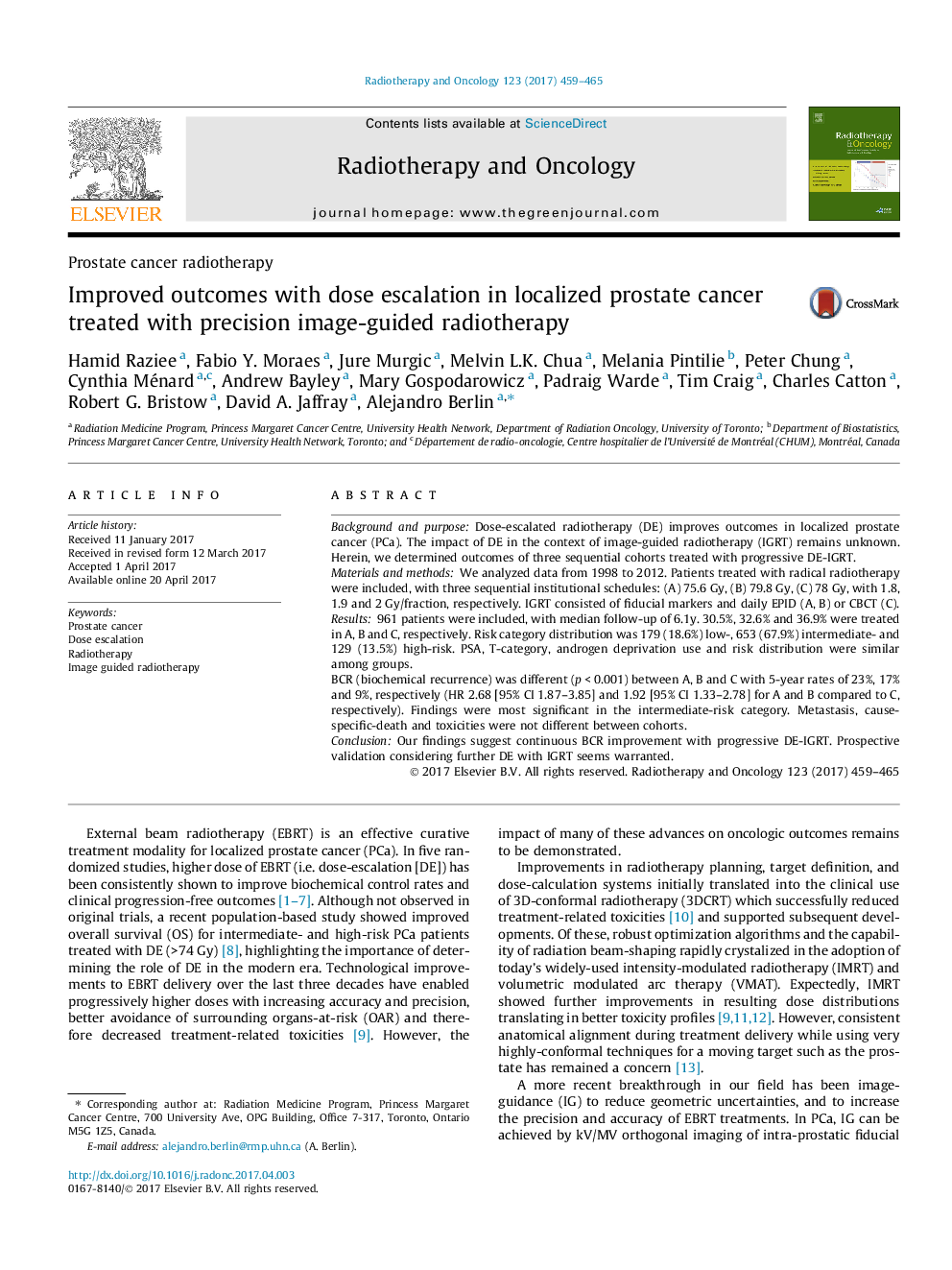| Article ID | Journal | Published Year | Pages | File Type |
|---|---|---|---|---|
| 5529836 | Radiotherapy and Oncology | 2017 | 7 Pages |
Background and purposeDose-escalated radiotherapy (DE) improves outcomes in localized prostate cancer (PCa). The impact of DE in the context of image-guided radiotherapy (IGRT) remains unknown. Herein, we determined outcomes of three sequential cohorts treated with progressive DE-IGRT.Materials and methodsWe analyzed data from 1998 to 2012. Patients treated with radical radiotherapy were included, with three sequential institutional schedules: (A) 75.6 Gy, (B) 79.8 Gy, (C) 78 Gy, with 1.8, 1.9 and 2 Gy/fraction, respectively. IGRT consisted of fiducial markers and daily EPID (A, B) or CBCT (C).Results961 patients were included, with median follow-up of 6.1y. 30.5%, 32.6% and 36.9% were treated in A, B and C, respectively. Risk category distribution was 179 (18.6%) low-, 653 (67.9%) intermediate- and 129 (13.5%) high-risk. PSA, T-category, androgen deprivation use and risk distribution were similar among groups.BCR (biochemical recurrence) was different (p < 0.001) between A, B and C with 5-year rates of 23%, 17% and 9%, respectively (HR 2.68 [95% CI 1.87-3.85] and 1.92 [95% CI 1.33-2.78] for A and B compared to C, respectively). Findings were most significant in the intermediate-risk category. Metastasis, cause-specific-death and toxicities were not different between cohorts.ConclusionOur findings suggest continuous BCR improvement with progressive DE-IGRT. Prospective validation considering further DE with IGRT seems warranted.
